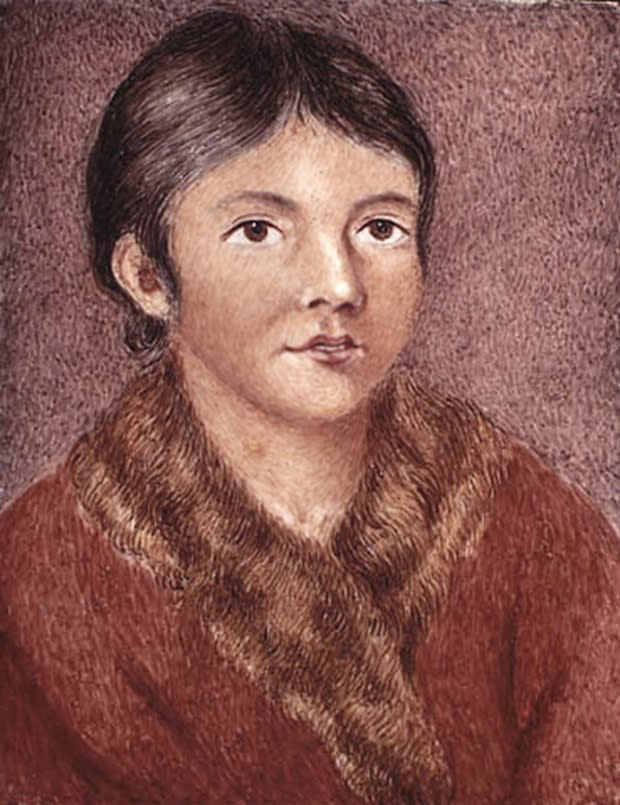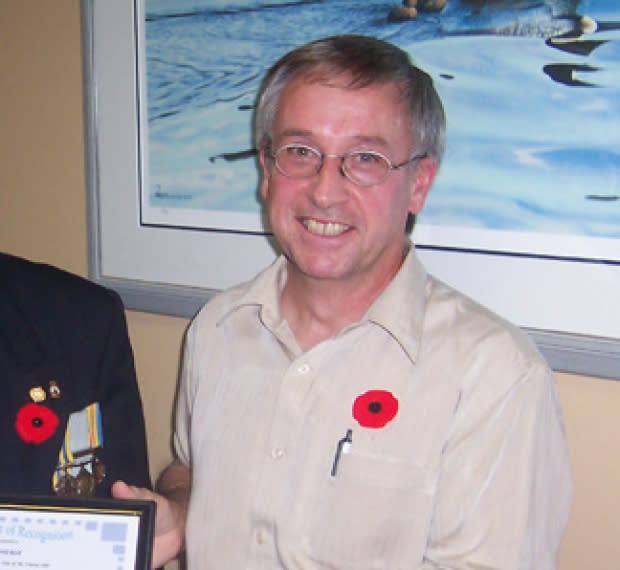Demasduit, Nonosabasut must be returned to Red Indian Lake: Buchans mayor
The remains of Demasduit and Nonosabasut must be returned to Red Indian Lake, according to a central Newfoundland mayor, where the bodies were laid to rest before their graves were "plundered" by a Scottish-Newfoundland explorer.
Buchans Mayor Derm Corbett says the Beothuk people made a choice to bury the couple together near the site, and that wish should be respected when their remains are returned to Canada.
They're not loaves of bread. They're remains of human beings who had a story and a past. - Derm Corbett
"Her people, her Beothuk friends and family, what was left of that community, took her. And buried her next to her husband and infant child. That was their final resting place until the grave was plundered," he told CBC Newfoundland Morning.
"These remains should be placed back in the original site where her people had interred them and had buried them. That's where they belong."
Last month, the National Museum of Scotland said the remains of both Beothuk people will be sent to the Canadian Museum of History in Gatineau, Que. Premier Dwight Ball has told CBC News he wants to see the remains brought back to Newfoundland and Labrador, and said The Rooms was a possible location.
The remains were taken from the grave by William Cormack in 1827, according to a statement from the Department of Canadian Heritage, who had explored the island in search of Beothuk people.
Demasduit was kidnapped by John Peyton, a European fur trapper, in 1819. It was in retaliation for an alleged theft by the Beothuk people.
Nonosabasut was killed as he tried to rescue his wife in the confrontation. Demasduit died of tuberculosis the next year.
Cormack later sent both sets of remains to a University in Edinburgh, and according to the Department of Canadian Heritage, they were eventually transferred to the National Museum of Scotland.

The remains have been subject to enough testing and photography, according to Corbett, that there is no reason to hold them at The Rooms in St. John's when they are eventually returned to Canada.
"It's abhorrent that these remains would be stored, in my opinion," he said. "These remains have been in Scotland now so long, they've been tested in every way, shape and form, and photographed, you name it, it's been done with them. They've been played with enough."
"They'll ring around a story about, yes, the air quality and the air condition and all this. It's foolishness. These remains should not be stored. They're not loaves of bread. They're remains of human beings who had a story and a past."
No timeline: Mi'sel Joe
Saqamaw Mi'sel Joe, chief of the Miawpukek First Nation, started the push to have the remains repatriated in 2015. He said Thursday that there was still no timeline for their return to Canada, based on his conversations with the provincial government.
"To me, it would be nice if it was done tomorrow. But we're not ready tomorrow. We may be ready to receive then in two months," he said.
According to Joe, like-minded people need to come together to determine how and where the Beothuk remains will be placed in the province.
Joe said he would not mind if the remains were briefly housed at The Rooms, but agrees that they should return to the area near Red Indian Lake.
"I think their spirit may be more at rest if they are put back where they came from," he said.

He said his first concern was bringing the remains back to Canada, and said the next steps will be sorted in time.
They are part of this island, they are part of us, and that's why I say they belong to all of us. - Mi'sel Joe
Joe says the remains should be repatriated with respect and dignity — and he says they should not be buried.
"If they're put into the ground, I think they would disappear over time. And we don't want that to happen. They've been gone too long for that to be just put in the ground," he said.
"I think we have to somehow find a way to have them above ground, but in some kind of monument, that surely tells the story of their disappearance from this island, and why they disappeared from this island."
Joe says the occasion of their return will be a great opportunity for forgiveness and reconciliation.
"What a way to look at the forgiveness part of this," he said.
"Europeans that's descended from when that happened, it's not their fault. They are here, they are part of this island, they are part of us, and that's why I say they belong to all of us."
Joe plans to travel to Scotland before the remains are moved to perform a small ceremony to mark the occasion. He says it will likely be focused around sweetgrass and a travelling song.
"It's a lot of soul searching that goes into what you would do at that moment," he said.
"To me, as we're bringing back remains of our people — people would say well, we're not Beothuk, but it's still our people — then we have to have an appropriate ceremony for bringing those remains."
Read more articles from CBC Newfoundland and Labrador

